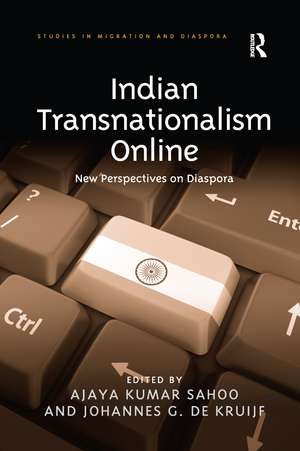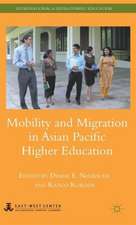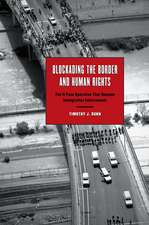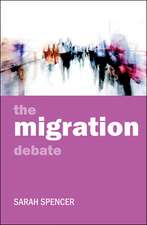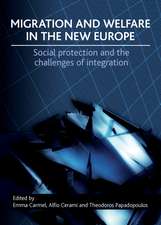Indian Transnationalism Online: New Perspectives on Diaspora
Autor Ajaya Kumar Sahoo, Johannes G. de Kruijfen Limba Engleză Paperback – 11 noi 2016
| Toate formatele și edițiile | Preț | Express |
|---|---|---|
| Paperback (1) | 469.34 lei 6-8 săpt. | |
| Taylor & Francis – 11 noi 2016 | 469.34 lei 6-8 săpt. | |
| Hardback (1) | 1057.89 lei 6-8 săpt. | |
| Taylor & Francis – 9 ian 2014 | 1057.89 lei 6-8 săpt. |
Preț: 469.34 lei
Nou
Puncte Express: 704
Preț estimativ în valută:
89.82€ • 93.65$ • 74.65£
89.82€ • 93.65$ • 74.65£
Carte tipărită la comandă
Livrare economică 21 martie-04 aprilie
Preluare comenzi: 021 569.72.76
Specificații
ISBN-13: 9781138255616
ISBN-10: 1138255610
Pagini: 228
Dimensiuni: 156 x 234 x 12 mm
Greutate: 0.45 kg
Ediția:1
Editura: Taylor & Francis
Colecția Routledge
Locul publicării:Oxford, United Kingdom
ISBN-10: 1138255610
Pagini: 228
Dimensiuni: 156 x 234 x 12 mm
Greutate: 0.45 kg
Ediția:1
Editura: Taylor & Francis
Colecția Routledge
Locul publicării:Oxford, United Kingdom
Notă biografică
Ajaya Kumar Sahoo is the Director of the Centre for Study of Indian Diaspora at the University of Hyderabad, India. He is the co-editor of Indian Diaspora and Transnationalism, Transnational Migrations: The Indian Diaspora, Sociology of Ageing: A Reader, Tracing an Indian Diaspora: Contexts, Memories, Representations, and Sociology of Diaspora: A Reader. Johannes G. de Kruijf is an Assistant Professor in the Department of Cultural Anthropology at Utrecht University, the Netherlands and author of Guyana Junction: Globalisation, Localisation, and the Production of East Indianness.
Recenzii
'The argument that mobility in the digital era is no longer synonymous with unrootedness and that CMC not only facilitates, but also intensifies the connectivity between migrants and their homeland, makes this volume a significant contribution to the fields of cultural studies, sociology, and political science.' Transfers 'This volume offers a useful collection of studies which examine the important role of online media in re-shaping Indian diasporic experiences and new connections forged across national boundaries and localities. ... the variety of themes explored and the very useful introduction and conclusion offered by de Kruijf make this volume an important contribution to scholarship on migration and diaspora studies as well as for the anthropology of globalisation.' South Asia: Journal of South Asian Studies '... a timely contribution, providing both empirical material and broader reflections on how the Indian diaspora has been reshaped by entering the age of Internet.' Asian and Pacific Migration Journal
Cuprins
Chapter 1 IntroductionMigrant Transnationalism and the Internet, Johannes G. de Kruijf; Part I Identity; Chapter 1a Performing Transnational Identity Online: Women Blogging from Domestic Spaces, Usha Raman, Sumana Kasturi; Chapter 2 The Trans-Indian: Perspectives on Real vs. Virtual Identity in the Age of the Internet, Ananda Mitra; Chapter 3 From the German Periphery '” On Ethnographic Explorations of Indian Transnationalism Online, Urmila Goel; Chapter 4 'ThirdSpace' as Transnational Space, Emily Skop; Chapter 5 Online Connections, Online Yatras: The Role of the Internet in the Creation and Maintenance of Links between Advaita Vedanta Gurus in India and their Devotees in the Diaspora, Heinz Scheifinger; Chapter 6 Cyberspace, the Globalisation of Hinduism, and Protocols of Citizenship in the Digital Age, Vinay Lal; Part II Power; Chapter 7 (Re-)connecting with the Indian Diaspora from the 'Homeland': Diaspora Conferences and the Construction of Online Linkages with Non-Resident Indians, Mirian Santos Ribeiro de Oliveira; Chapter 8 Is Guruji Online? Internet Advice Forums and Transnational Encounters in a Vaishnav Sectarian Community, Emilia Bachrach; Chapter 9 Globalisation and the Transnationalism of 'Dalit' Identity: Probings from Modern India, Ashish Saxena; Chapter 10 ConclusionThe Diasporic Web: Reflexive Dialogue and Agentive Awareness, Johannes G. de Kruijf;
Descriere
Indian Transnationalism Online investigates the online organization of, and exchanges within the global Indian diaspora. Bringing together research from around the world and presenting studies drawn from the US, Europe and India, it engages with theoretical and methodological debates concerning the shaping and transformation of migrant culture in emerging sites of sociality, and explores issues such as religion, citizenship, nationalism, region and caste as they relate to Indian identity in global, transnational contexts.
